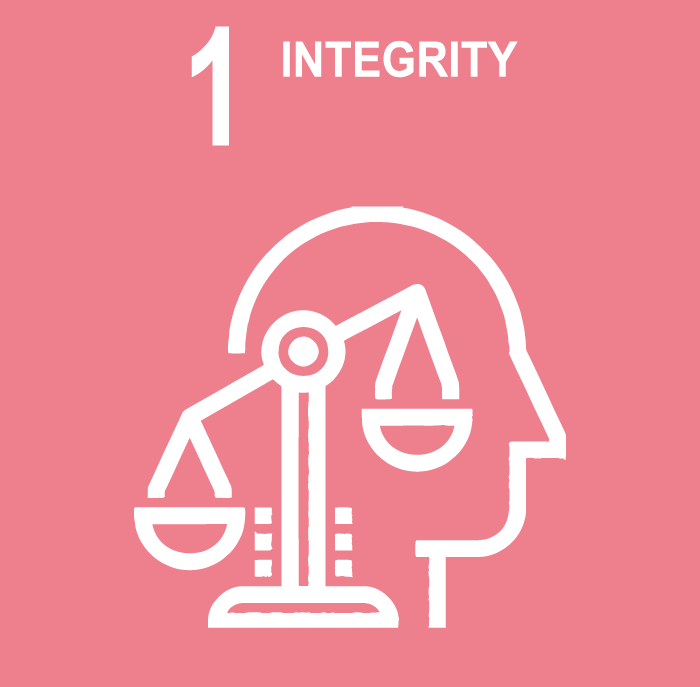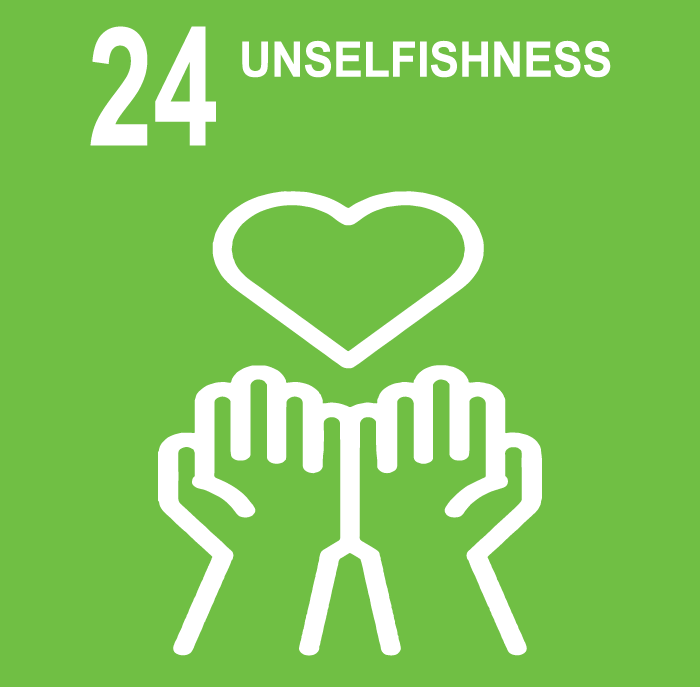At We Let Studio, we are proud to practice the 28COE Core Values articulated by Dr. Bilal Ahmad Bhat. Dr. Bhat emphasizes that these core values are the bedrock of any successful organization or individual. By adhering to defined core values, we set a clear and unwavering path to success.
The 28COE Core Values provide us with a comprehensive framework that guides our actions, decisions, and interactions. From integrity and honesty to boldness and innovation, these values shape our culture and drive our mission. They foster a sense of accountability, inspire continuous improvement, and ensure that we deliver exceptional value to our clients and community.
We are deeply grateful to Dr. Bhat and the entire team of 28 Credentials of Entrepreneur (28COE) for their invaluable contributions. Their insights and principles have empowered us to build a strong, ethical, and innovative organization. By practicing these core values, We Let Studio is committed to achieving excellence and making a positive impact in our industry and beyond. Thank you, Dr. Bhat, and the 28COE team, for lighting our way to success.

Integrity is the quality of being honest and having strong moral principles. It is the foundation upon which trust and respect are built. In a business context, integrity means doing the right thing even when no one is watching. It involves being honest with clients, employees, and stakeholders, and ensuring that all actions align with ethical standards. Integrity fosters a positive reputation and establishes a trustworthy environment, which is crucial for long-term success. It also encourages a culture of transparency and accountability within the organization.

Boldness involves taking risks and stepping outside of one’s comfort zone to pursue ambitious goals. It is about having the courage to innovate and challenge the status quo. In the business world, boldness can lead to groundbreaking ideas and significant advancements. Bold leaders inspire their teams to think creatively and embrace new opportunities. This quality is essential for growth and progress, as it pushes individuals and organizations to explore uncharted territories and achieve extraordinary results.

Honesty is the practice of being truthful and transparent in all dealings. It is a fundamental component of integrity and is critical for building trust. In an organizational setting, honesty ensures clear communication and fosters a culture of openness. When leaders and employees are honest, it creates a reliable and predictable environment, reducing misunderstandings and conflicts. Honesty also enhances relationships with clients and partners, as they can rely on the company to provide accurate information and deliver on promises.

Trustworthiness is the ability to be relied upon as honest and truthful. It goes hand-in-hand with integrity and honesty, forming the bedrock of strong relationships. Trustworthiness is crucial in business, as it ensures that clients, employees, and stakeholders feel confident in their interactions with the company. Being trustworthy means consistently demonstrating reliability and dependability, which in turn fosters loyalty and long-term partnerships. It is a quality that enhances an organization’s reputation and stability.

Accountability is the obligation to take responsibility for one’s actions and decisions. It is about owning up to mistakes and taking proactive steps to rectify them. In a business context, accountability ensures that everyone within the organization is answerable for their performance and contributions. This principle fosters a culture of trust and reliability, as employees and leaders alike are committed to meeting their obligations. Accountability also drives continuous improvement, as it encourages self-reflection and the pursuit of excellence.

Learning is the ongoing process of acquiring knowledge and skills. In a dynamic business environment, continuous learning is essential for staying competitive and adapting to change. Organizations that prioritize learning encourage their employees to develop professionally and personally. This culture of learning leads to innovation, improved problem-solving, and better decision-making. It also ensures that the organization can respond effectively to new challenges and opportunities, driving sustained growth and success.

A community of customer experience focuses on creating and maintaining strong relationships with customers. It involves understanding their needs, expectations, and feedback to improve products and services continuously. This value emphasizes the importance of customer satisfaction and loyalty, recognizing that happy customers are more likely to return and recommend the business to others. By fostering a community of customer experience, organizations can build a loyal customer base and enhance their reputation in the market.

Passion is the intense enthusiasm and dedication towards one’s work or goals. It is the driving force that motivates individuals to go above and beyond. In the business world, passion translates into a commitment to excellence and a willingness to put in the extra effort to achieve success. Passionate employees are more engaged, productive, and innovative. This energy can be contagious, inspiring others within the organization to strive for their best and contribute to a positive and dynamic work environment.

A culture of fun in the workplace promotes a positive and enjoyable environment. It recognizes that happy employees are more productive, creative, and engaged. By incorporating elements of fun into the corporate culture, organizations can reduce stress, foster better teamwork, and improve overall morale. Activities, celebrations, and a lighthearted atmosphere contribute to a sense of camaraderie and make the workplace more appealing. A culture of fun can attract top talent and retain employees, leading to a more vibrant and successful organization.

Discipline involves adhering to rules, standards, and procedures to achieve desired outcomes. It is about maintaining focus, consistency, and perseverance in the pursuit of goals. In a business context, discipline ensures that tasks are completed efficiently and to a high standard. It fosters a culture of reliability and accountability, where employees are committed to their responsibilities and deadlines. Discipline is essential for maintaining order and achieving long-term success, as it underpins effective planning and execution.

A community of ownership instills a sense of responsibility and accountability among employees. When individuals feel a sense of ownership, they are more invested in the success of the organization. This value encourages employees to take initiative, make decisions, and contribute to the company’s goals. A community of ownership fosters a collaborative and proactive work environment, where everyone feels valued and empowered to make a difference. It leads to higher engagement, innovation, and overall performance.

Being result-oriented means focusing on achieving specific outcomes and goals. It emphasizes the importance of setting clear objectives and measuring performance against these targets. In a business context, a result-oriented approach ensures that efforts are aligned with the company’s strategic priorities. This focus on results drives productivity, efficiency, and accountability. It also encourages continuous improvement, as individuals and teams strive to meet and exceed their goals, leading to sustained success and growth.

Constant improvement, or continuous improvement, is the ongoing effort to enhance products, services, and processes. It involves regularly evaluating performance, identifying areas for improvement, and implementing changes. This value fosters a culture of innovation and excellence, where employees are encouraged to seek better ways of doing things. Constant improvement leads to higher quality, increased efficiency, and greater customer satisfaction. It ensures that the organization remains competitive and responsive to changing market conditions.

Leadership involves guiding and inspiring others to achieve common goals. Effective leaders set a vision, communicate it clearly, and motivate their teams to work towards it. In a business context, strong leadership is crucial for navigating challenges, driving change, and achieving success. Leaders who embody the organization’s core values set the tone for the entire company, fostering a positive culture and ensuring that everyone is aligned with the company’s mission and objectives.

Hard work is the dedication and effort put into achieving goals and completing tasks. It is about going the extra mile and persisting in the face of challenges. In the business world, hard work is often the key to success. It demonstrates commitment, resilience, and a strong work ethic. Organizations that value hard work recognize and reward their employees’ efforts, fostering a culture of excellence and high performance. Hard work lays the foundation for achieving both short-term and long-term goals.

Diversity involves recognizing and valuing the differences among individuals. This includes differences in race, gender, age, culture, abilities, and perspectives. In a business context, diversity enhances creativity, innovation, and problem-solving by bringing together a wide range of viewpoints and experiences. A diverse workforce is better equipped to understand and serve a diverse customer base. Embracing diversity also fosters an inclusive and equitable work environment, where all employees feel respected and valued.

Innovation is the process of generating new ideas and implementing them to create value. It involves thinking creatively and challenging conventional wisdom. In the business world, innovation is essential for staying competitive and meeting evolving customer needs. Organizations that prioritize innovation are able to develop new products, improve services, and streamline processes. This leads to increased efficiency, market differentiation, and long-term success. An innovative culture encourages risk-taking and experimentation, driving continuous improvement and growth.

Quality refers to the standard of excellence in products, services, and processes. It involves meeting or exceeding customer expectations and ensuring reliability and consistency. In a business context, a commitment to quality builds trust and loyalty among customers. It also enhances the company’s reputation and competitiveness. Organizations that prioritize quality invest in continuous improvement and strive to deliver the best possible outcomes. This focus on quality ensures that the company remains a leader in its industry.

Teamwork is the collaborative effort of a group to achieve a common goal. It involves effective communication, cooperation, and coordination among team members. In a business context, teamwork is essential for leveraging diverse skills and perspectives to achieve better results. Strong teamwork fosters a supportive and inclusive work environment, where individuals feel valued and motivated. It also enhances problem-solving and decision-making, leading to increased productivity and innovation. Teamwork is the cornerstone of a successful organization.

Simplicity involves removing unnecessary complexity to focus on what truly matters. It is about making processes, products, and communication straightforward and easy to understand. In a business context, simplicity enhances efficiency and clarity, reducing the likelihood of errors and misunderstandings. It also improves customer experience, as simple solutions are often more user-friendly and accessible. Organizations that prioritize simplicity strive to streamline operations and eliminate bureaucracy, creating a more agile and responsive business.

Collaboration and partnership involve working together with others to achieve mutual goals. This includes internal collaboration among team members and external partnerships with other organizations. In a business context, collaboration fosters innovation and problem-solving by combining different skills and perspectives. Partnerships can expand the company’s capabilities and reach, leading to new opportunities and growth. A collaborative culture encourages open communication, trust, and shared responsibility, enhancing overall performance and success.

Idealism is the pursuit of high principles and values. It involves striving for excellence and believing in the possibility of achieving great things. In a business context, idealism drives a commitment to quality, integrity, and social responsibility. It inspires individuals and organizations to aim for lofty goals and make a positive impact. Idealistic organizations are often seen as leaders in their fields, setting standards and influencing change. This value fosters a sense of purpose and motivation, leading to sustained success.

Courage is the ability to face challenges and take risks with confidence. It involves standing up for what is right and making difficult decisions. In the business world, courage is essential for innovation and growth. It empowers individuals and organizations to pursue new opportunities, even in the face of uncertainty. Courageous leaders inspire their teams to take bold actions and embrace change. This value is critical for overcoming obstacles and achieving significant breakthroughs.

Unselfishness involves putting the needs of others before one’s own. It is about fostering a culture of generosity and collaboration. In a business context, unselfishness leads to stronger teamwork and better relationships with clients and partners. It encourages a focus on collective success rather than individual gain. Organizations that prioritize unselfishness are more likely to build loyal and supportive communities. This value also enhances employee satisfaction and engagement, as individuals feel valued and respected.

Entitlement refers to the belief that one deserves certain privileges or rewards. In a business context, entitlement can have both positive and negative implications. Positive entitlement involves a sense of deserving success due to hard work and contribution. Negative entitlement, however, can lead to unrealistic expectations and a lack of accountability. Balancing entitlement involves recognizing and rewarding effort while maintaining a fair and equitable environment. Organizations need to foster a culture of meritocracy, where rewards are based on performance and contribution.

Self-respect is the recognition and appreciation of one’s own worth and abilities. It involves maintaining a sense of dignity and integrity in all actions. In a business context, self-respect drives individuals to uphold high standards and take pride in their work. It fosters confidence and resilience, enabling employees to navigate challenges and setbacks. Organizations that encourage self-respect create a positive work environment where individuals feel valued and empowered. This leads to higher engagement, productivity, and overall well-being.

Client value creation involves delivering products and services that meet or exceed customer expectations. It focuses on understanding and addressing client needs to provide exceptional value. In a business context, this value is critical for building strong customer relationships and achieving long-term success. Organizations that prioritize client value creation invest in continuous improvement and innovation to enhance their offerings. This focus on customer satisfaction leads to increased loyalty, positive word-of-mouth, and competitive advantage.

One global network emphasizes the importance of connectivity and collaboration across geographic and cultural boundaries. In a business context, it involves leveraging global resources, knowledge, and opportunities to achieve shared goals. This value fosters a sense of unity and inclusiveness, recognizing that diversity and global perspectives enhance innovation and problem-solving. Organizations that embrace a global network are better equipped to navigate international markets and build strategic partnerships. This approach drives growth, adaptability, and long-term success.
At We Let Studio, we firmly believe that the 28COE Core Values are the key to achieving both personal and organizational success. Whether you are a seasoned professional or a small-to-medium enterprise (SME), these values offer a clear guide to navigating the complexities of today’s business environment. By embracing these principles, you can pave the way for sustained growth, innovation, and excellence.
We Let Studio recommends these core values to all our partners, clients, and community members. These values are not just abstract concepts but actionable guidelines that can transform the way you operate and interact. They are designed to foster a culture of integrity, accountability, and continuous improvement, ensuring that your business can adapt and thrive in a competitive landscape.
The 28 core values are deeply interconnected, creating a cohesive framework for success. Integrity, honesty, and trustworthiness form the ethical foundation, fostering a culture of accountability, transparency, and reliability. These values ensure that your actions align with your principles, building a strong reputation and trustworthy relationships.
Boldness, courage, and innovation are the drivers of progress and growth. They encourage taking calculated risks and exploring new frontiers, which is essential for staying ahead in the market. Meanwhile, learning and constant improvement ensure that you remain adaptable and resilient, continuously evolving to meet new challenges.
Passion, hard work, and discipline lead to high performance and excellence. These values motivate you to strive for the best, pushing boundaries and achieving remarkable outcomes. A community of customer experience, client value creation, and a global network emphasize the importance of relationships and collaboration, helping you build strong connections and leverage diverse opportunities.
Finally, diversity, unselfishness, and idealism promote inclusivity, social responsibility, and a shared sense of purpose. These values foster a supportive and equitable environment, where everyone feels valued and empowered to contribute their best.
Together, these values create a dynamic and sustainable ecosystem where individuals and organizations can thrive. By integrating the 28COE Core Values into your business strategy, you can build a robust, ethical, and innovative foundation that drives long-term success and impact.

